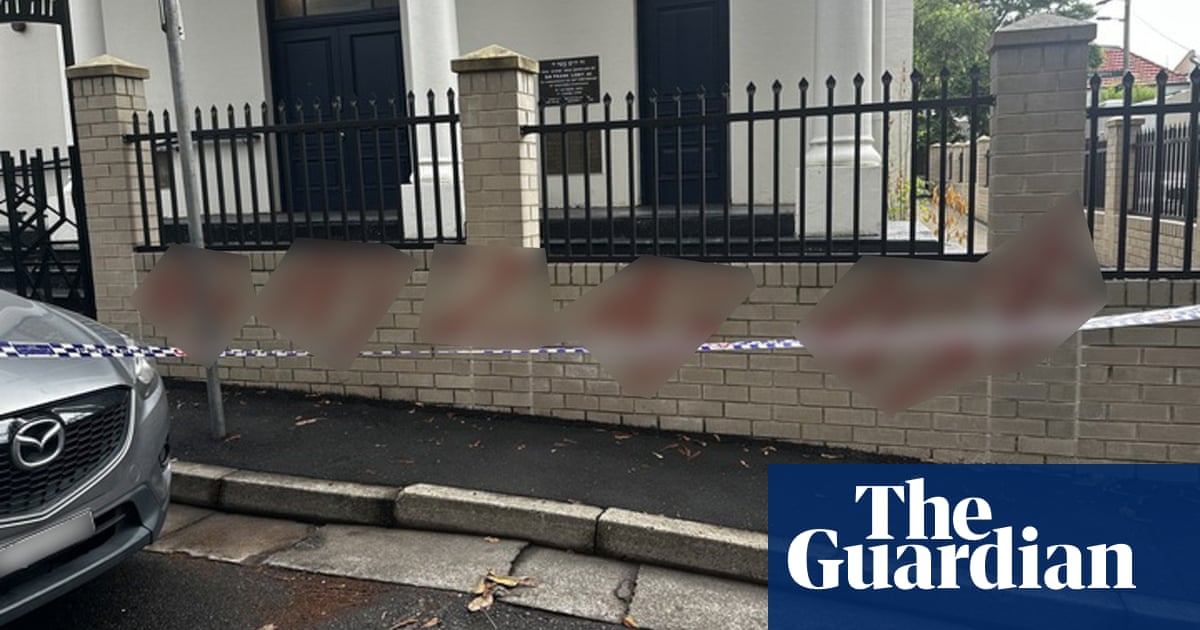All the corpses had been recovered but still the rescuers sifted through the rubble. A paramedic carried a sack with him, filled with the charred remains of his colleagues. Every few feet he stopped and knelt down, assessing. In the twisted mess left behind by the Israeli airstrike, it was hard to distinguish between flesh, earth and the life-saving equipment that had melted in the heat of the blast.
The night before, on Thursday, an Israeli jet had dropped a bomb on the salon of the Douris civil defence centre on the outskirts of the ancient Lebanese town of Baalbek, killing 20 people, including 15 first responders. Five were rendered unrecognisable by the force of the explosion. On Friday afternoon, emergency workers were still collecting bodily remains to be taken for DNA analysis.
Since fighting between Israel and the Lebanese Shia militia Hezbollah started last year, 3,481 people have been killed in Lebanon, about 80% of them since Israel started its intensified aerial and ground campaign in late September, which has also displaced 1.2 million Lebanese and devastated swathes of the country.
On Sunday Hezbollah reportedly responded positively to a US-delivered ceasefire proposal, as the group reels from the loss of nearly all of its senior leadership and thousands of its fighters.
Thursday’s strike left surviving civil defence members in shock as they searched for an explanation. The Douris civil defence was a state service, unlike rescue services affiliated to Hezbollah and its ally Amal.
“When we first got here, we didn’t think it could be the civil defence centre. Why would they hit it? They were registered with the ministry of interior. What other guarantees could we have?” Atta Mansour, the head of local rescue service Shifaa, said at the strike site on Friday.
Among the dead in Douris was Bilal Raad, the head of state civil defence for Baalbek-Hermel, the country’s largest province. In the week before he was killed, Raad had lamented the fact that the region lacked a device to detect life under rubble and that as a result, civil defence teams were spending too much time digging up corpses rather than rescuing the living.
“When I asked [Raad] what he needs, he said there’s this device, a bio radar, it detects living people under the rubble. He referred to an experience that he had the night before, where he spent a lot of time digging up corpses, but he was more concerned about knowing where life was first,” said Rami Rajeh, who runs a fundraising campaign to procure supplies for the cash-strapped Lebanese civil defence. Rajeh and his peers have raised more than $70,000 (£55,000) in donations to help equip the state civil defence teams.
“What was really sad and ironic was that he was concerned about getting this bio radar to his centre. And this is probably the device that could have saved him and his peers,” Rajeh said.
The scene in Douris has become familiar in Lebanon. More than 200 emergency responders have been killed in Israeli strikes. Healthcare workers and state officials have accused Israel of deliberately targeting medical teams, and of bombing sites a second time when rescuers arrive.
Israel has accused Hezbollah of hiding weapons and fighters in ambulances – a claim it has not provided any evidence for – and says its campaign in Lebanon is against Hezbollah targets.
In Tyre, the second largest city in southern Lebanon, the head of the district’s civil defence, Moussa Nasrallah, said that he thought the strikes were designed to degrade living conditions and displace residents. He complained that Israel would strike at ambulances as they approached sites, only allowing them to approach after several days, meaning that anyone trapped under the rubble would die.
Nasrallah is new to his position as district chief. His predecessor, Abdallah Moussawi, was killed alongside six other members of the civil defence in an Israeli airstrike on 9 October.
“Of course there is fear, but you put aside your feelings and work with your brain,” he said. “You try not to recall memories and you try not to dream about the future. You try to live in the moment.”
As a result of the more than 60 attacks on healthcare facilities over the last year, more than eight hospitals have been forced to close, most of them in south Lebanon and the southern suburbs of Beirut. Officials have compared the damage to the Lebanese healthcare sector to that in Gaza, where the World Health Organization has said Israel has engaged in “systematic dismantling of healthcare”.
Medical professionals in Douris pointed to the damage caused to hospitals in south Lebanon as a model for what could lie in store for Baalbek. When the centre was targeted, at least 14 people were injured, most of them bystanders. Despite an Israeli evacuation order issued for Baalbek and two surrounding towns two weeks earlier, cars and people remained on the roads on Friday afternoon – a far cry from the deserted streets of south Lebanon.
“Israel is trying to terrorise people. It is not discriminating between civilians, ambulances, anything,” Mansour said, gesturing to the pile of blood-stained concrete blocks where the Douris civil defence centre once stood.

.png) 1 month ago
10
1 month ago
10













































